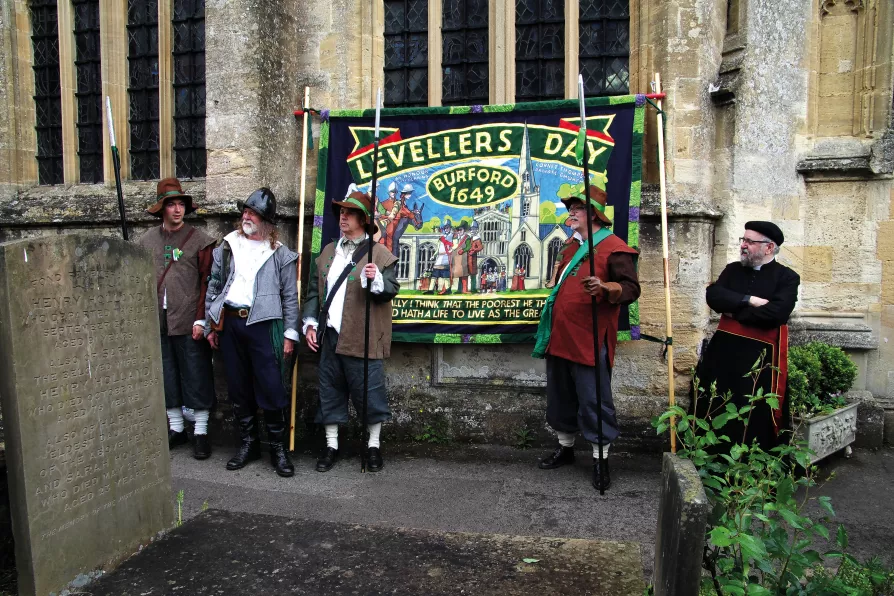Reform’s rise speaks to a deep crisis in Establishment parties – but relies on appealing to social and economic grievances the left should make its own, argues NICK WRIGHT

 RADICAL: Participants at Levellers’ Day in Burford, 2017
RADICAL: Participants at Levellers’ Day in Burford, 2017
“I THINK the poorest has a life to live in England as the greatest. The poorest man in England is not bound to any government he has not had a voice in choosing” — Leveller leader Thomas Rainborough at The Putney Debates (1647).
The Oxford English Dictionary dates the first written use of the term for the political movement to 1644, in Marchamont Needham’s pamphlet, The Case for the Commonwealth of England Stated — although this may have been a retrospective conceit as the pamphlet was printed in 1650, but, for our purposes 1644 suits admirably.
Born from the tyrannical rule of Charles I and subsequent tumult of the English civil wars in the 1640s, proto-democratic semi-socialist republicans the Levellers were the first English political movement with a coherent manifesto, much of which anticipated later trade unions and political parties.













